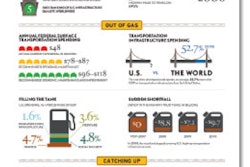
Liquidating agreements are enforceable when properly drafted
In a recent Colorado case that involved an airport runway reconstruction project and a drilling and blasting subcontractor’s claim for additional costs due to differing site conditions — R. E. Monks Construction Co., LLC v. Telluride Regional Airport Authority (May 2, 2012) — the court provided a roadmap for making “pass-through claims” against government entities.
It is worthwhile to understand “pass-through claims” because they are important in government contracting. A pass-through claim is a claim by a party who has suffered damages (typically a subcontractor), against a responsible party with whom it has no contract (typically a governmental entity, i.e., the owner/government), presented by an intervening party (typically the prime contractor) who has a contractual relationship with both. In this example, the claim from the subcontractor “passes-through” the prime contractor to the owner/government.
Generally, absent “privity of contract,” a subcontractor may not make a claim against or sue the government directly. “Privity of contract” simply means that parties are in a direct contractual relationship. Absent legal authority to the contrary, pass-through claims are not allowed due to subcontractors’ lack of privity of contract with the government. However, a body of law has developed in the federal contracting arena, and many states, allowing pass-through claims against the government if certain requirements are met.
In the federal contracting arena, the Severin doctrine, which developed from the case Severin v. United States, 99 Ct. Cl. 435 (1943), provides for pass-through claims against the federal government. In the Severin case, the court held a subcontractor could not recover against the government in a representative lawsuit if the prime contractor was not also liable to the subcontractor on the same claim. This means the prime contractor must be obligated to pay the subcontractor regardless of whether the subcontractor claim is ultimately paid by the government.
Over the past several decades, federal court decisions have modified the Severin doctrine to limit the harsh effects from its strict application. For example, the Severin doctrine does not bar a legal action against the government if the prime contractor and subcontractor enter into a “liquidating agreement.” A “liquidating agreement” is an agreement between the prime contractor and subcontractor which typically provides the subcontractor will release all claims it may have against the prime contractor in exchange for the prime contractor’s promise to pursue the subcontractor’s claims against the government. When properly drafted, liquidating agreements are enforceable. Liquidating agreements do not violate the Severin doctrine unless they completely and expressly release the prime contractor from liability to its subcontractor. In other words, a properly drafted liquidation agreement is a critical to ensuring that a pass-through claim will be upheld.

Prior to the contract, TRAA hired Terracon to perform exploratory drillings. Monks alleged the borings were located in the area where drilling and blasting would occur, were done to determine whether groundwater could be expected, and reflected that groundwater should not be expected. As a result, Monks submitted a bid to TRAA of anticipated costs to perform “dry hole” blasting, and stated that if “wet hole” conditions were encountered on the project, extra costs would result.
In early April 2009, AD&B commenced drilling and blasting. Almost immediately, Monks and AD&B alleged they encountered significant levels of groundwater in areas that TRAA represented would be dry. TRAA was notified of the wet hole condition and was informed that extra costs would result due to a differing site condition. TRAA refused to pay for any extra costs.
In June 2011, Monks, on behalf of AD&B, filed suit against TRAA, seeking in excess of $874,676 in damages. Prior to filing suit, Monks and AD&B entered into a liquidation agreement, wherein Monks and AD&B agreed to resolve the resolve the wet hole blasting claim between Monks and AD&B. In the liquidation agreement, Monks granted AD&B the authority to pursue the wet hole blasting claim in the name of Monks. In addition, the liquidation agreement reserved all rights against TRAA.
TRAA requested the court dismiss the case, arguing the liquidation agreement was not enforceable because of the prohibition against assignments in the TRAA/Monks contract, and because any claim that Monks had against TRAA was extinguished as a result of AD&B releasing Monks from any liability to it. The court denied TRAA’s request to dismiss the case. The court disagreed that the liquidation agreement violated the TRAA/Monks contract prohibition against assignments. The court reasoned that if the liquidation agreement was an assignment of rights, any monies recovered would have to be paid directly by TRAA to AD&B. This was not the case.
TRAA also argued that under the Severin doctrine, Monks’ claim against TRAA was nullified as a result of AD&B releasing Monks from any liability. The court disagreed, finding the liquidation agreement between Monks and AD&B did not contain an “iron-bound” release. As a result, the court allowed Monk’s pass-through claim against TRAA to go forward.
The R. E. Monks Construction Co. case highlights the importance and complexity of understanding and properly drafting pass-through claims and liquidation agreements. The rules regarding pass-through claims, including time and procedural requirements, often vary between federal, state and local government jurisdictions. The failure to follow these requirements can be fatal to a pass-through claim (prior to the claim ever being considered on the merits). In order to properly preserve and assert their rights should a “pass-through claim” arise, prime contractors, subcontractors, material suppliers, sureties and their counsel should understand the differences and distinctions regarding “pass-through claims” in whatever jurisdictions they transact business.
Brian Morrow is a partner in Newmeyer & Dillion LLP, a law firm in California. He is a licensed California Civil Engineer, and specializes in the field of construction law, including road and heavy construction. Contact him at [email protected]











